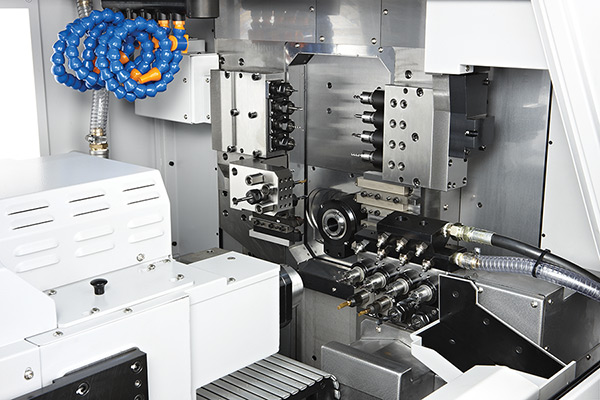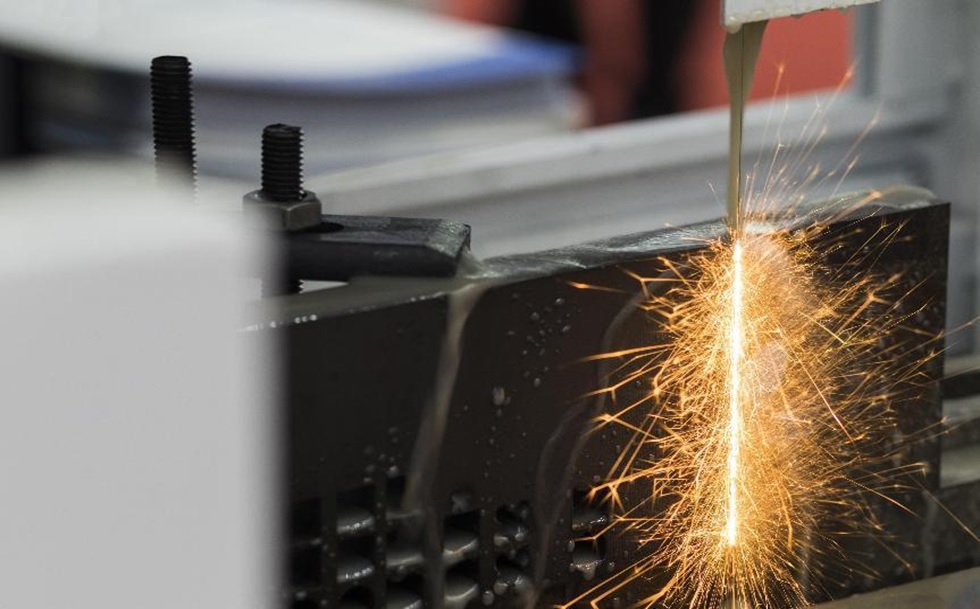In the automotive industry, where precision is paramount, the production of small, intricate components demands advanced manufacturing techniques.
Two such techniques that have proven essential for creating micro-components with tight tolerances are CNC Electrical Discharge Machining (EDM) and Swiss Machining.
Both processes offer the precision and versatility needed to manufacture critical parts like fuel injector nozzles, electrical connectors, and other micro-components.
The Importance of Precision in Automotive Components
As automotive technology evolves, the demand for smaller, more complex components continues to grow. These parts must meet strict performance requirements while maintaining exacting tolerances.
Automotive components like fuel injector nozzles and electrical connectors must operate efficiently under extreme conditions, requiring parts with minimal margins for error. This is where CNC EDM and Swiss Machining come into play.
CNC Electrical Discharge Machining (EDM)
CNC EDM is a non-traditional machining process that removes material from a conductive workpiece using electrical discharges, or sparks. The two main types of EDM used in precision machining are wire EDM and sinker EDM.
In Wire EDM, a thin wire serves as the electrode, while in Sinker EDM, a custom-shaped electrode is used. Both methods excel in producing precise parts with complex geometries.
Benefits of CNC EDM in Automotive Component Production
- High Precision for Complex Shapes: CNC EDM can produce components with intricate shapes, sharp corners, and deep cavities—features that are often required in small automotive parts. Fuel injector nozzles, for example, require precisely machined holes for the proper atomization of fuel, and EDM is capable of achieving such accuracy.
- Material Versatility: EDM works on hard and exotic materials like titanium, tungsten, and tool steel, which are commonly used in the automotive industry for their strength and heat resistance.
- Tight Tolerances: EDM can achieve tolerances as tight as ±0.005 mm, making it ideal for producing micro-components where even the smallest deviation can affect performance.
- Surface Finish Quality: The electrical discharge process naturally produces a smooth surface finish, reducing the need for secondary finishing operations. This is particularly advantageous in components like electrical connectors that require precise contact surfaces for optimal conductivity.

Applications of CNC EDM in Automotive Manufacturing
- Fuel Injector Nozzles: The tiny, intricate holes in fuel injectors are created using EDM, ensuring accurate fuel delivery and improved engine efficiency.
- Electrical Connectors: EDM is used to machine the intricate patterns and shapes of electrical connectors, which are critical for maintaining proper connections in modern vehicles.
- Turbocharger Components: Precision turbocharger parts, often exposed to high temperatures and pressures, require the high accuracy and material versatility of EDM.
Swiss Machining
Swiss machining, also known as Swiss turning or Swiss screw machining, is a specialized method of precision machining that involves feeding a workpiece through a guide bushing while multiple cutting tools operate simultaneously.
A guide bushing supports the workpiece near the cutting area, providing enhanced stability and precision, particularly when machining long, slender parts.
Benefits of Swiss Machining in Automotive Component Production
- Exceptional Precision for Small Parts: Swiss machines are designed to produce small, intricate components with diameters as small as 1mm. This is particularly useful for manufacturing components like micro fasteners and valve components used in automotive systems.
- High Efficiency for Small, Complex Parts: Swiss machining is ideal for parts that require multiple operations, such as turning, milling, and drilling. The ability to perform these operations in one setup reduces production time while maintaining precision, which is critical for automotive components with complex geometries.
- Consistent Quality with Tight Tolerances: Swiss machines can achieve tolerances of ±0.002 mm, ensuring that small components meet strict industry standards for reliability and performance. For example, the tight tolerances required in fuel injector parts ensure that they fit perfectly into automotive assemblies and operate efficiently.
- High-Volume Production Capabilities: Swiss machining is perfect for producing high volumes of small components, as the process is highly automated and efficient. This makes it cost-effective for mass production of automotive parts, such as screws, pins, and connectors.
Applications of Swiss Machining in Automotive Manufacturing
- Fuel Injector Nozzles: Swiss machines produce the small, cylindrical parts of fuel injectors with the required precision to ensure consistent fuel delivery in engines.
- Electrical Connectors: These connectors, critical for transmitting electrical signals, are often machined using Swiss techniques to ensure uniformity and exact specifications.
- Valve Components: In various automotive systems, including fuel injection and braking, Swiss machining is used to produce precision valve components that regulate fluid and air flow.
CNC EDM vs. Swiss Machining: A Comparison
While both CNC EDM and Swiss machining are capable of producing highly precise automotive components, each technique has its specific strengths. CNC EDM excels in machining hard materials and creating complex shapes, making it ideal for parts with challenging geometries, such as fuel injector nozzles.
Swiss machining, on the other hand, is better suited for high-volume production of small cylindrical parts, such as screws, pins, and connectors, where speed and accuracy are essential.

